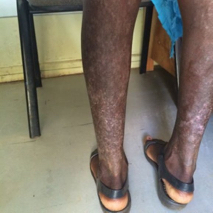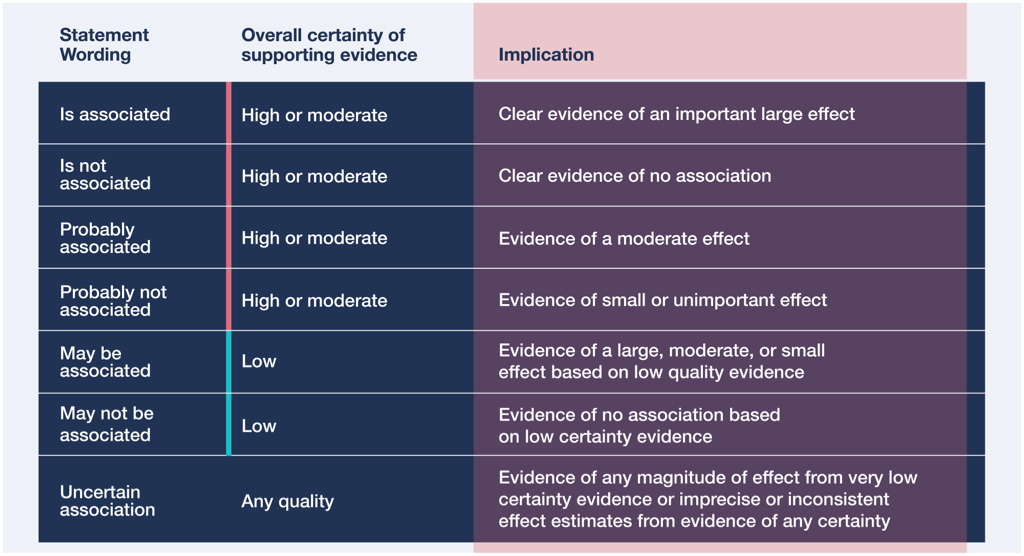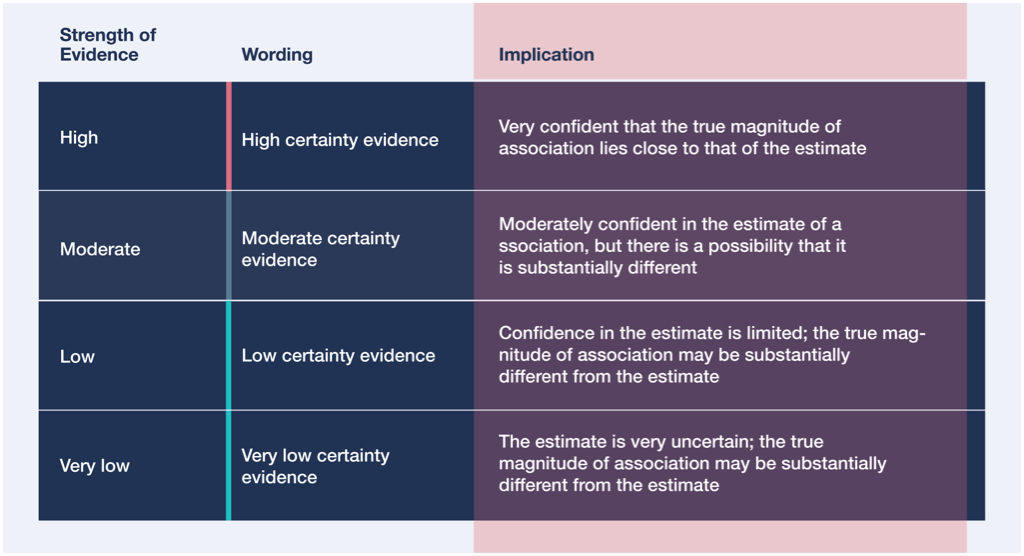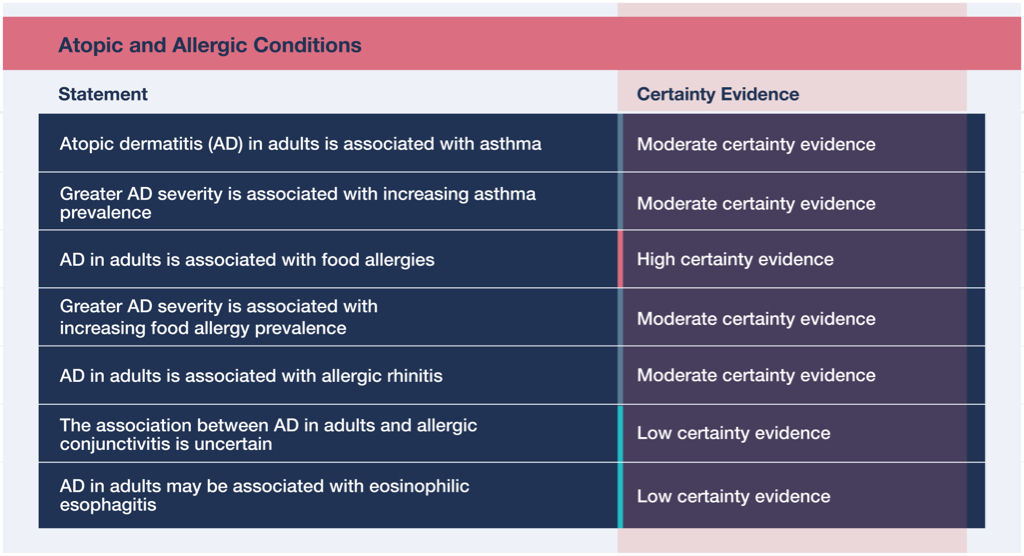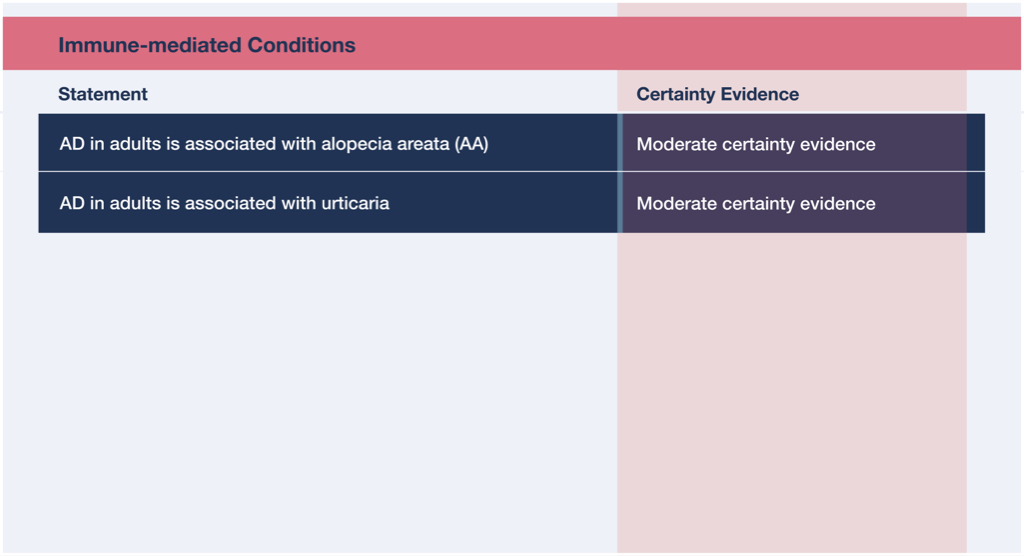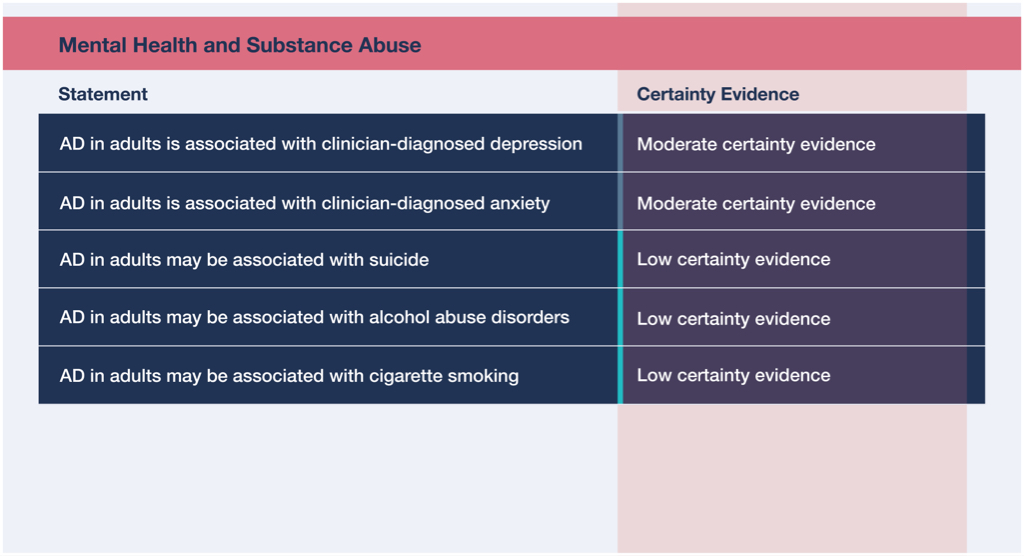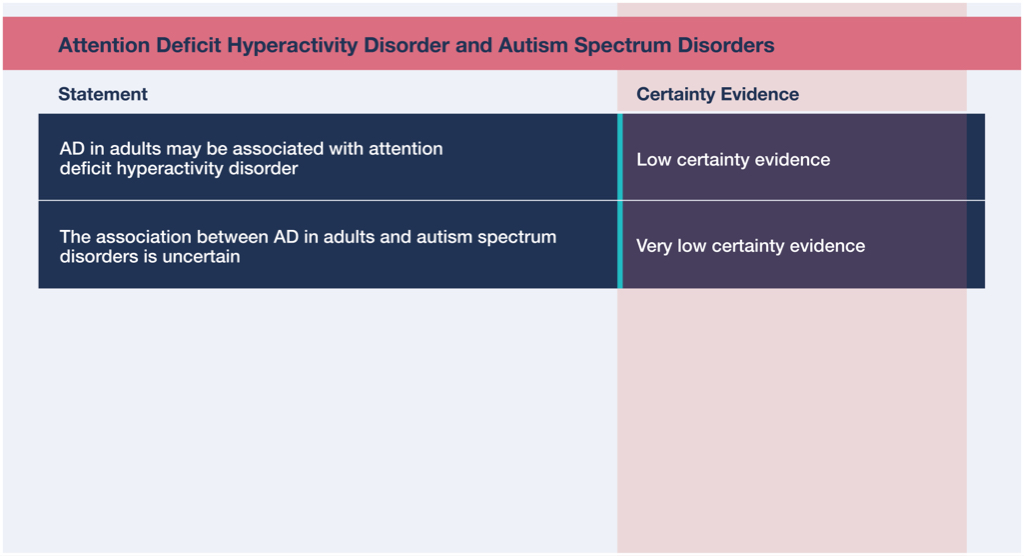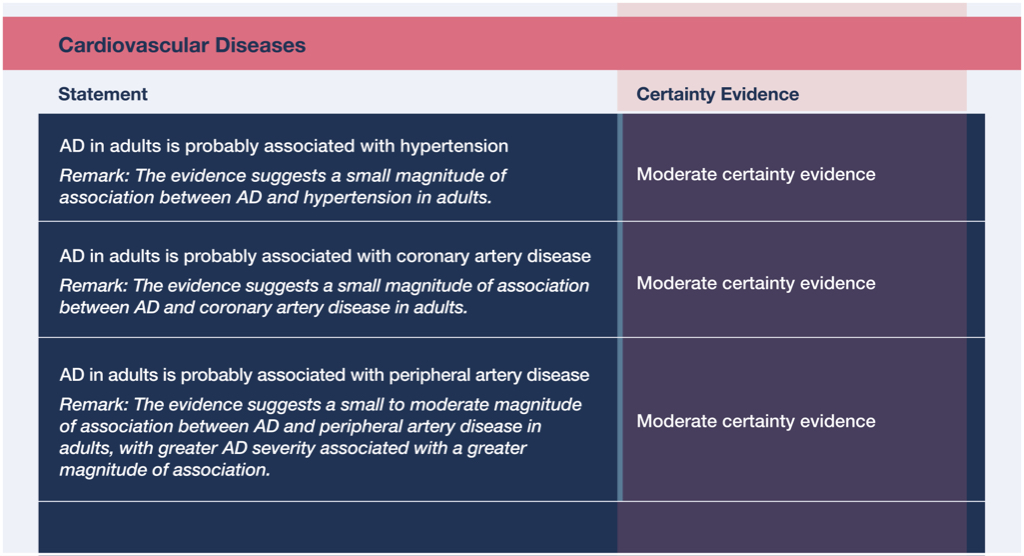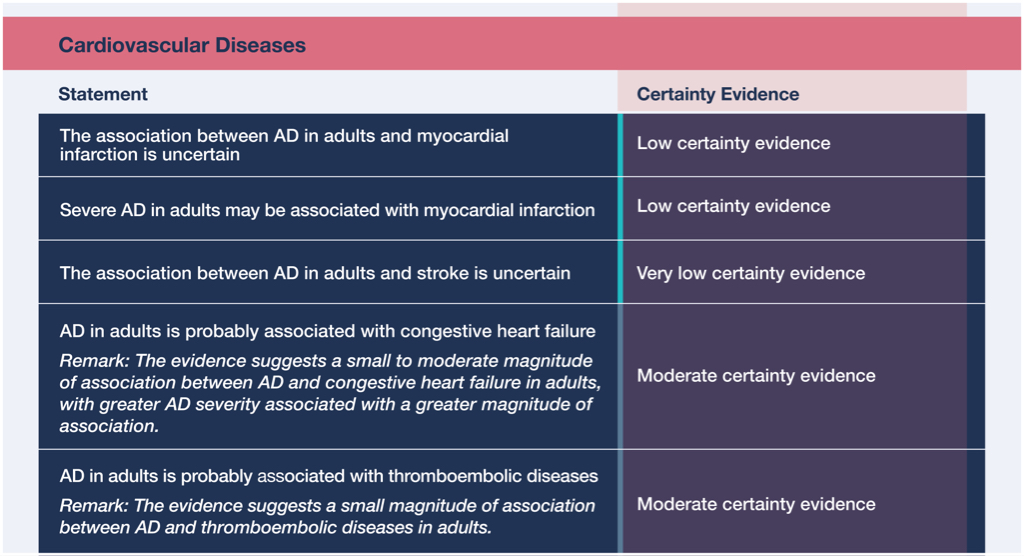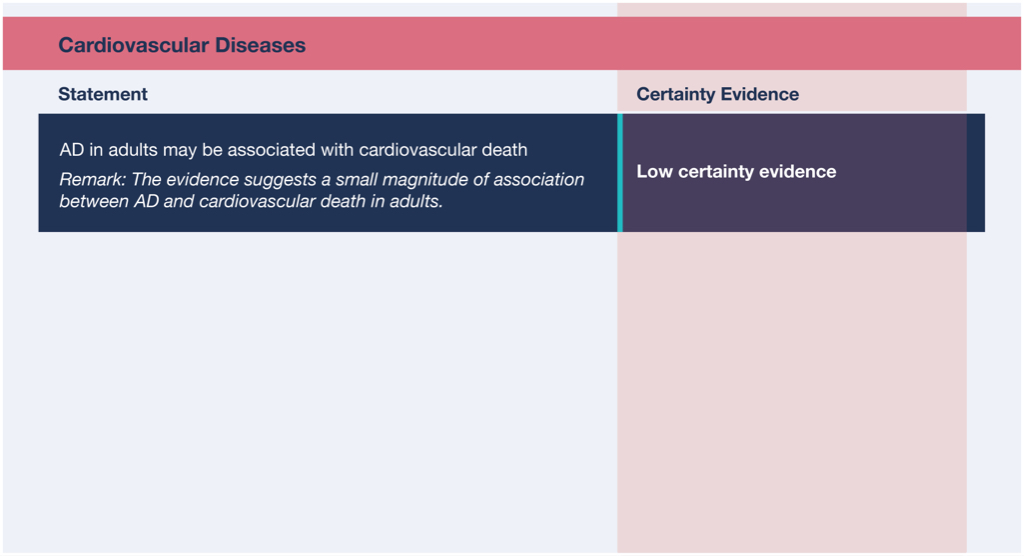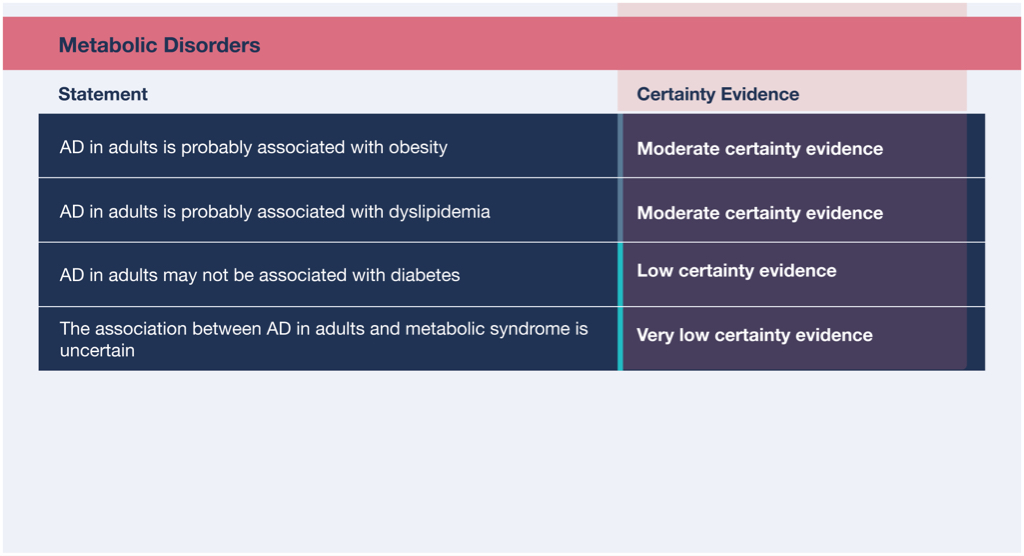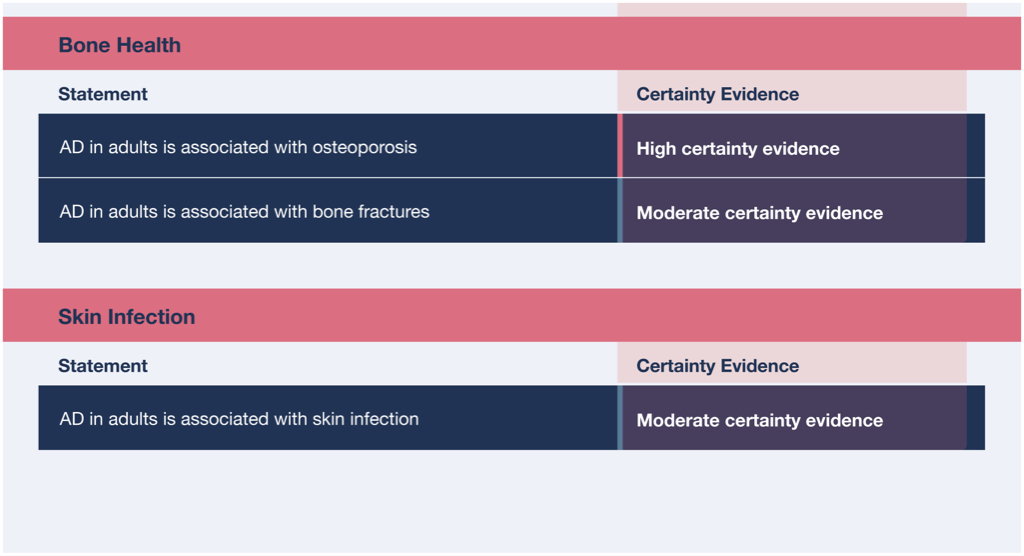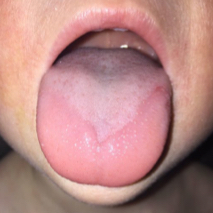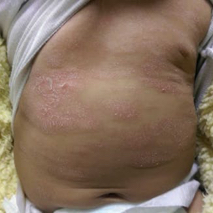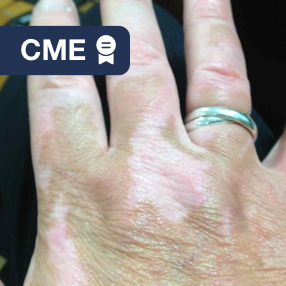
DERMATOLOGY
Atopic Dermatitis Comorbidities
Clinical Guidelines and Resources
Sign up for Figure 1 and be notified directly of new clinical cases and related research, CME activities, quizzes, news, and trends. It’s free!

Figure 1, 2 ,3

Clear links identified between atopic dermatitis, asthma, and allergic conditions

Patients are more likely to have autoimmune issues; including alopecia areata and chronic urticaria

Patients are more likely to have psychosocial disorders; but links not yet established
Summary
The American Academy of Dermatology (AAD) released updated guidelines in 2022 on comorbidities associated with atopic dermatitis in adults. Here’s a brief summary of some key recommendations for dermatologists and other healthcare professionals coming out of the guidelines.
First, there are now clear links between atopic dermatitis, asthma, and allergic conditions. A quarter of all atopic dermatitis patients have asthma, and adults with atopic dermatitis are three times more likely to have asthma than the general population. There also appears to be a link between the severity of atopic dermatitis and asthma. The more severe atopic dermatitis is, the more likely the patient will have asthma as well.
Atopic Dermatitis Comorbidities Clinical Guidelines and Resources
Immunoglobulin-E-mediated food allergies also now have a clear connection with atopic dermatitis, and just like with asthma, the more severe atopic dermatitis is in a patient, the more likely they are to have food allergies.
A second take away from the guidelines is there’s a link between atopic dermatitis and autoimmune conditions. People with atopic dermatitis are 26 times more likely to develop alopecia areata than people without atopic dermatitis. To date, there is no approved treatment in the United States for alopecia areata.
Similarly, chronic urticaria is also strongly associated with atopic dermatitis, with atopic dermatitis patients being 10 times more likely to develop chronic urticaria than people without atopic dermatitis. While treatments exist for chronic urticaria, their effectiveness in patients who also have atopic dermatitis appears to be more limited.
A third take away from the guidelines is patients with atopic dermatitis are more likely to have psychosocial disorders. Atopic dermatitis patients are around one and a half times more likely to report anxiety symptoms, and twice as likely to report depression than people without atopic dermatitis. That said, the reasons why atopic dermatitis patients are more likely to experience these mental health disorders have yet to be established. One theory suggests the symptoms of atopic dermatitis, such as itch, and poor sleep, cause a psychosocial burden, although further research is needed.
A fourth takeaway from the guidelines is there is a small association between atopic dermatitis and cardiovascular conditions like myocardial infarction and hypertension. However, the association between these conditions is weak. Further research is needed to determine if these associations have any clinical implications.

Full Guidelines
Read the full guidelines on atopic dermatitis comorbidities from AAD: Awareness of Comorbidities Associated with Atopic Dermatitis in Adults
Statement Wording and Certainty Evidence

Atopic Dermatitis Patient Cases
Click on the image to see the full case details and sign in to view community comments.
See more cases like these
Sign up for Figure 1 and gain access to a library of 100,000+ real-world cases.

Continuing Medical Education
Free CME Activity: Learn to identify the clinical presentation of vitiligo, a chronic autoimmune disorder of pigmentation associated with atopic dermatitis. You will also better understand the role of decreased alpha-melanocyte-stimulating hormone (alpha-MSH) in the pathophysiology of vitiligo and importance of alpha-MSH in modulating melanogenesis and inflammation. Start activity >
Free Dermatology CME
Sign up for Figure 1 and gain access to our continuously growing CME & Education Center full of visually interesting and unique CME activities.


Related Research
Atopic Dermatitis and Risk of Autoimmune Diseases: A Systematic Review and Meta-Analysis | PubMed
“Atopic dermatitis is the most common chronic inflammatory skin disease and presents a major public health burden worldwide. Recent observational studies revealed the potential association between atopic dermatitis with autoimmune disorders. However, there is no meta-analysis of the prevalence or incidence of autoimmune diseases in atopic dermatitis. Therefore, considering the potential clinical implications of these associations, we aimed to assess the risk of autoimmune diseases in patients with atopic dermatitis using this method.”
Atopic Dermatitis—Beyond the Skin | PubMed
“To regard atopic dermatitis as a systemic inflammatory disease is still controversial, and in this work, we synthetize data from the literature on atopic dermatitis and extra-cutaneous-associated disorders as well as recently discovered pathogenic mechanisms to give a broader picture of atopic dermatitis. As a result, we hope to improve therapeutic methods, discover other innovative therapies, and increase of the life quality of the patients with atopy.”
Atopic Dermatitis: An Expanding Therapeutic Pipeline for a Complex Disease | PubMed
“Recent advances in understanding of disease mechanisms have led to the discovery of novel potential therapeutic targets and drug candidates. In addition to regulatory approval for the IL-4Ra inhibitor dupilumab, the anti-IL-13 inhibitor tralokinumab and the JAK1/2 inhibitor baricitinib in Europe, there are now more than 70 new compounds in development. This Review assesses the various strategies and novel agents currently being investigated for AD and highlights the potential for a precision medicine approach to enable prevention and more effective long-term control of this complex disease.”

